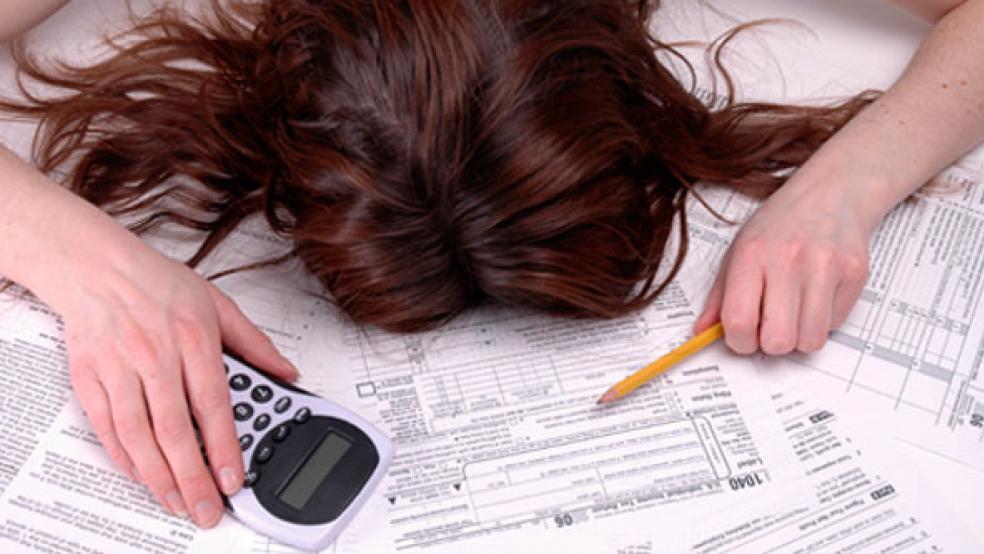Come tax time, we’re probably all digging through files that have been gathering dust for years: old tax returns, utility bills, credit card statements. And it happens to coincide with that time of year that brings spring-cleaning.
What better time to purge?
But then there are nagging questions: Which financial documents should I keep—and what can I dispose of? Do I need to shred, so as not to lure identity thieves?
Fear not. The suggested rules for which financial documents you should keep aren’t crazy and they aren’t written in microscopic print. We’ve got them all right here.
And there’s an even better reason to consider tackling this to-do: According to a poll by theConsumer Reports National Research Center, nearly one in four Americans say they’ve either lost or forgotten about an important financial document, and only 40 percent think they could locate an important document at a moment’s notice.
Related: 7 Ways to Get Organized for Tax Season
First, let us offer you a potential solution to that lost-doc feeling of panic: LearnVest’s Doc Vault, available to all of our premium members. There you can securely upload all of your most important financial documents, see which crucial forms you’re missing and keep them safe until the next time you need them in a hurry.
In the meantime, here are our handy suggestions for what to upload and what to dispose of:
Trash in a Few Days:
- ATM receipts, once you record the transaction
- Bank deposit slips, once the funds appear in your account
- Receipts for things you bought on a credit card, once you get your statement, unless you need it for a return or a warranty
- Credit card statement, unless it has a tax-related expense on it
Trash After 1 Year:
- Utility bills, if not needed for business deductions (such as a home office)
- Paycheck stubs, until you’ve reconciled them with your W2
- Bank statements, aside from pages that include copies of canceled checks needed for tax purposes
- Brokerage statements, once you get your annual statement, unless they show a trade for a gain or a loss for tax purposes
- Receipts for medical and dental expenses if there’s a chance you might itemize(you can start deducting health care bills once they exceed 10 percent of your adjusted gross income.
Related: Make a Mint Selling Your Stuff
Trash After 7 Years:
- Supporting documents for tax returns, including W2s, 1099s, tax-reporting statements, and proof of charitable contributions. The IRS has three years to audit you unless there’s a chance you underreported income or it suspects fraud. (Note: These are tax years, so keep supporting documents for your 2013 return—filed in 2014—until 2020.)
Keep Indefinitely:
- Tax returns with proof that you filed and paid (if you owed)
- IRS forms you filed when you made nondeductible contributions to a traditional IRA or Roth conversion
- Retirement and brokerage account annual statements
- Receipts for capital home improvements, until you sell the home. (And then you should hang onto them for tax purposes—see tax documentation rules.)
- Receipts for large purchases, for insurance purposes
- Brokerage statements proving cost basis of an investment you still own, unless you bought it in 2011 or later, in which case the brokerage now tracks that price
What You Can't Keep in the Cloud
There are many papers you can scan and upload to a secure location, trashing the original. That’s not the case for these items. You should consider making a copy of these documents to keep at home and keep the original in a safe place, such as a safety deposit box or with a trusted relative. (Make sure the safety deposit box can be accessed easily in the event of your death.) The exception: You probably want to keep your passport on hand in case you need it in a hurry.
- Birth certificates
- Citizenship papers
- Custody agreement
- Deeds and titles
- Divorce certificate
- Loan/mortgage paperwork
- Major debt repayment records
- Marriage license
- Military records
- Passport
- Powers of attorney
- Stock certificates
- Wills and living wills
- Anything with an original signature or a raised seal
What to Shred:
Believe it or not, the answer is not “everything.” “People in general try to properly destroy or shred way too much,” says Darla DeMorrow, a professional organizer and owner of HeartWork Organizing, LLC in Pennsylvania. “My litmus test is if it has your Social Security number or a financial account number, you want to make sure you shred that.” If you have too much shreddable material to reasonably do it yourself, watch for a community shredding event in your area, or go to a FedEx office where you can shred for 79 cents per pound!
How to Delete Important Files:
You’re not going to like this—you really can’t delete files completely. “It is impossible and it’s getting harder,” DeMorrow says. When you decommission a computer, make sure you remove the hard drive and destroy it. That means putting holes in it or taking it to a company that shreds hard drives—going at it with a hammer in your driveway isn’t going to do the trick. “The best way to destroy a hard drive is to take it to somebody who has a drill press, and literally put four to 10 holes in it,” DeMorrow says. “You have to make that disk nonreadable.”
This story originally appeared at LearnVest. Read more at Learnvest:
6 Documents Everyone Should Have to Protect Their Finances

